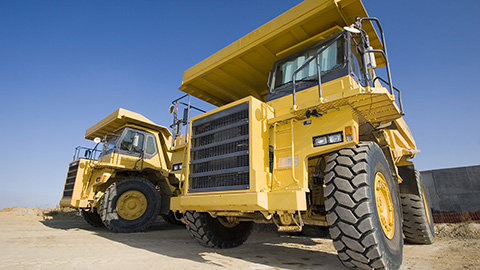Composites: The Future of Sustainable Construction Materials
Composites: The Future of Sustainable Construction Materials
Blog Article
Discovering the Uses and Advantages of Recycled Composites in Modern Industries
In today's rapidly progressing commercial landscape, the usage of recycled compounds has amassed enhancing attention for its prospective to redefine typical production methods. The combinations of recycled materials with sophisticated composite innovations provides an appealing avenue for boosting sustainability, strength, and cost-efficiency throughout numerous markets. As sectors look for innovative remedies to attend to ecological concerns and boost operational performances, the consolidation of recycled composites emerges as a compelling alternative. This change in the direction of lasting methods not just straightens with worldwide conservation initiatives but also offers a myriad of benefits that hold the trick to shaping the future of modern-day production techniques.
Ecological Advantages of Recycled Composites
The use of recycled composites in modern-day markets uses substantial ecological benefits, adding to the decrease of waste and the conservation of all-natural sources. By including recycled compounds right into making processes, sectors can lower their dependence on virgin products, consequently decreasing the quantity of waste generated and the energy needed for removal and production. This change towards utilizing recycled compounds helps in diverting materials from garbage dumps, relieving the concern on waste administration systems, and lowering greenhouse gas exhausts connected with typical manufacturing practices.
Additionally, using recycled compounds promotes the preservation of all-natural resources such as wood, minerals, and water, which are often depleted through the extraction and processing of basic materials (composites). By prolonging the lifespan of materials through recycling, sectors can aid maintain communities and biodiversity by lowering the demand for brand-new resources. Overall, the adoption of recycled composites in modern-day sectors plays an important function in promoting sustainability and reducing the ecological impact of production processes
Boosted Resilience in Product Production
With a concentrate on longevity and toughness, including recycled composites into item production processes boosts longevity and sustainability. By utilizing recycled compounds, makers can produce items that are not just solid yet also resistant to damage, making them excellent for lasting usage in different industries. The mix of different materials in recycled composites can commonly cause enhanced strength and resilience contrasted to standard products, supplying an economical service for producing long-lasting items.
Among the essential advantages of utilizing recycled composites in item manufacturing is the capability to tailor the material residential properties to satisfy particular durability demands. By changing the structure and production strategies, makers can tailor the recycled composites to stand up to severe environmental conditions, heavy loads, or frequent usage without jeopardizing on efficiency. This versatility in design and manufacturing permits the development of highly long lasting products that maintain their stability over time, reducing the need for regular substitutes and ultimately adding to a more sustainable production procedure.
Cost-Effectiveness and Financial Benefits
Including recycled compounds right into product production not just improves sturdiness and sustainability however likewise provides significant cost-effectiveness and economic benefits. Making use of recycled composites can lead to reduced product expenses as recycled products find more are usually more economical than virgin materials. In addition, reusing composite products can decrease garbage disposal costs and lower the demand for land fill room, contributing to overall expense financial savings for markets.

Development and Design Flexibility With Recycled Composites
Making use of recycled compounds in modern-day markets provides unequaled opportunities for technology and design flexibility. By integrating recycled materials into composite manufacturing procedures, firms can push the borders of typical style restraints and explore brand-new opportunities. The adaptability of recycled compounds enables the production of complicated forms and frameworks that could not be achievable with standard materials.
Among the vital benefits of recycled composites is their capacity to be built into different kinds, providing developers the freedom to try out one-of-a-kind sizes and shapes. composites. This adaptability opens a globe of innovative chances, making it possible for the development of lightweight yet long lasting items that meet the certain needs of various sectors
Additionally, making use of recycled compounds advertises sustainable techniques and sustains the circular economy by minimizing waste and reducing the environmental influence of manufacturing processes. This emphasis on next page eco-friendly style solutions lines up with the expanding trend in the direction of sustainability in modern-day sectors, making recycled compounds a valuable source for forward-thinking and ingenious firms.
Applications Across Numerous Industries
Recycled composites locate impactful and varied applications across a vast array of sectors due to their one-of-a-kind properties and sustainability benefits. The aerospace market benefits from recycled compounds in the manufacturing of airplane components, where the products' strength-to-weight ratio is critical for making certain security and efficiency. The adaptability and sustainability of recycled compounds make them valuable across numerous industries, driving innovation and ecological stewardship.
Final Thought
To conclude, the application of recycled compounds in contemporary industries supplies considerable environmental benefits, enhanced resilience in item manufacturing, cost-effectiveness, and financial benefits. The use of recycled composites permits for development and style flexibility across various sectors. On the whole, the fostering of recycled compounds offers a sustainable and functional solution for satisfying the demands of the market while additionally decreasing environmental influence.

One of the key advantages of making use of recycled composites in product production is the capability to tailor the product residential properties to meet certain toughness requirements. Utilizing recycled composites can lead to decreased material costs as recycled materials are usually much less costly than virgin materials. The aerospace industry advantages from recycled compounds in the manufacturing of aircraft components, where the products' strength-to-weight proportion is important for making sure safety and performance.
Report this page